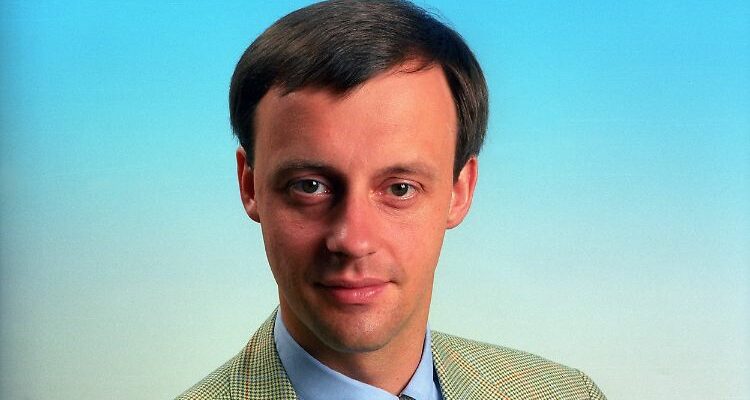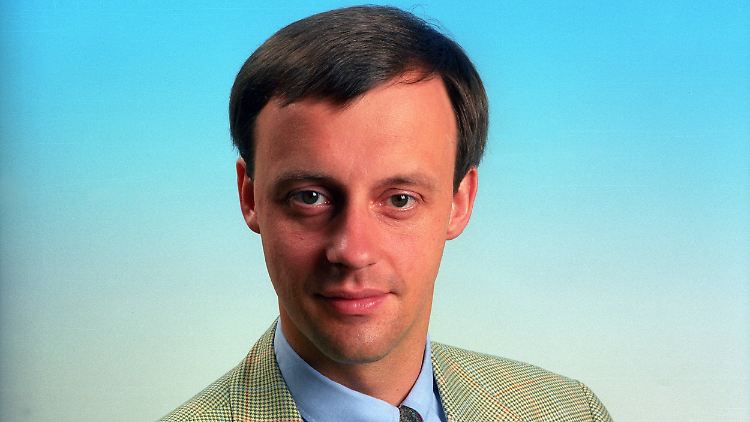In terms of fashion and music, the 1990s had a wide range of offerings that many who were there back then fondly remember. However, there are fewer reasons for political nostalgia.
Last Tuesday, Union parliamentary group leader Friedrich Merz spoke very highly of the politics of the 1990s. The reason was a frontal attack by the Green Federal Minister of Economics Robert Habeck. At the start of the Green party conference in Karlsruhe, he called the CDU a “party of yesterday” and Merz a “chairman of the day before yesterday”.
Habeck spoke about a crisis of conservatism that he diagnosed: “While sensible policies are being made at state level in many Union-led governments, the Union in the Bundestag, under the chairmanship of Mr. Merz, is not in a position to get to grips with reality and make viable proposals “It doesn’t know what it wants, but it wants to do it all the louder and a lot of it. A party from yesterday, led by a leader from the day before yesterday. This, the crisis of conservatism, threatens to become a loss of trust in modernity itself.”
In the Bundestag, Merz thanked him “expressly and very warmly” for these words, which was of course meant ironically: “Mr Habeck, you thought it was right at your party conference last week to declare my party, the CDU, as a party the 1990s,” he said, even though Habeck wasn’t talking about the 1990s, but about “yesterday” and “the day before yesterday.”
Merz said he considered “what you said a great compliment.” In the 1990s, economics ministers sat on the government bench “who really understood something about economic policy” – a sentence that caused amusement among the CDU/CSU faction. Merz made a similar comment about the foreign ministers of the 1990s. “And we had a finance minister, Theo Waigel, who in ten years, despite the greatest fiscal challenges, led Germany safely into the monetary union. And, Mr. Chancellor, we had a federal chancellor, Helmut Kohl, sitting on the government bench who was committed to German unity “The European internal market and the monetary union really made history for Germany and Europe.” Scholz is “light years away” from that.
The time of the “sick man”
Already in the Bundestag debate, FDP parliamentary group leader Christian Dürr noted that “not a single economics minister in the 1990s was appointed by the CDU/CSU, but only by the FDP and SPD.” For this, according to Dürr, “a Check Wikipedia” – a compendium that didn’t exist in the 1990s.
The success of the economics ministers at the time – their names were Haussmann, Möllemann, Rexrodt and Müller – could be debated. In his biography of Kohl, the historian Hans-Peter Schwarz calls the person with the longest term in office, the FDP politician Günter Rexrodt, “not particularly assertive”; Together with the then FDP leader Klaus Kinkel, Rexrodt was unable to “effectively promote far-reaching, well-calculated and politically implementable reform concepts within the coalition or even enforce them.” The term “reform backlog” became the word of the year in 1997.
It is also not entirely fair to compare Helmut Kohl and his sixteen-year term as Chancellor with Scholz, who has just been in office for two years. Nevertheless, it is undoubtedly true that Kohl made history. This doesn’t necessarily apply to Merz’s very positive memories of the 1990s. This doesn’t mean banalities like the saying that anyone who remembers the 1990s didn’t experience it. But the 1990s were not only a mixture of Love Parade and grunge, Tamagotchi and rump tattoos, but also scooters “Hyper, Hyper”, mass unemployment and right-wing radical violence: in Rostock-Lichtenhagen, Mölln, Solingen and many other places. The 1990s were those too Baseball bat years.
Economically, Germany was considered “the sick man of Europe”. This judgment by the then Ifo President Hans-Werner Sinn dates back to 2003, when Helmut Kohl had been out of office for five years. However, Sinn specifically referred to the period since 1995, when it became clear that the “blooming landscapes” promised for East Germany in 1990 would still be a while away.
And then there was “Operation Goldschatz”
These were years of crisis. Theo Waigel, CSU politician and Federal Finance Minister from 1988 to 1998, who was so praised by Merz, had to announce a record amount of net borrowing in January 1997 when the budget was finalized for the previous year and allowed himself to be ridiculed by the opposition as “Lord of the Holes”. His record was not set until 2009. (At this point, a certain Olaf Scholz is minister under Chancellor Angela Merkel, not yet for finance, but for labor and social affairs.)
Waigel succeeds in leading Germany into the monetary union despite the greatest fiscal challenges. However, there are also a few tricks. In 1996, Germany was still well above the permissible deficit of 3.0 percent at 3.4 percent. In 1997, the decisive year for the introduction of the euro, it was surprisingly only 2.7 percent, even though the OECD had assumed in June of the same year that Germany would not meet the so-called Maastricht criteria. A little help is being made for a good cause: land from the federal railway assets will be sold in the fourth quarter. Germany is also allowed to exclude the debts of public hospitals from its total debt. The German Institute for Economic Research notes that reducing new German debt is “hardly to be called sustainable”. However, “Operation Goldschatz” remains without consequences: in May 1997, the finance minister wants to have hidden reserves distributed from the Federal Republic’s gold and foreign currency treasury in order to meet the euro criteria. The Bundesbank can “Waigel’s bank robbery” however, ward off.
All of this is a thing of the past and doesn’t make the 1990s any worse than it actually was. Especially since looking back (see graphic) shows that the debt records at the time are relative. But one thing is also clear: the 1990s were not as great as Friedrich Merz thinks he remembers.

